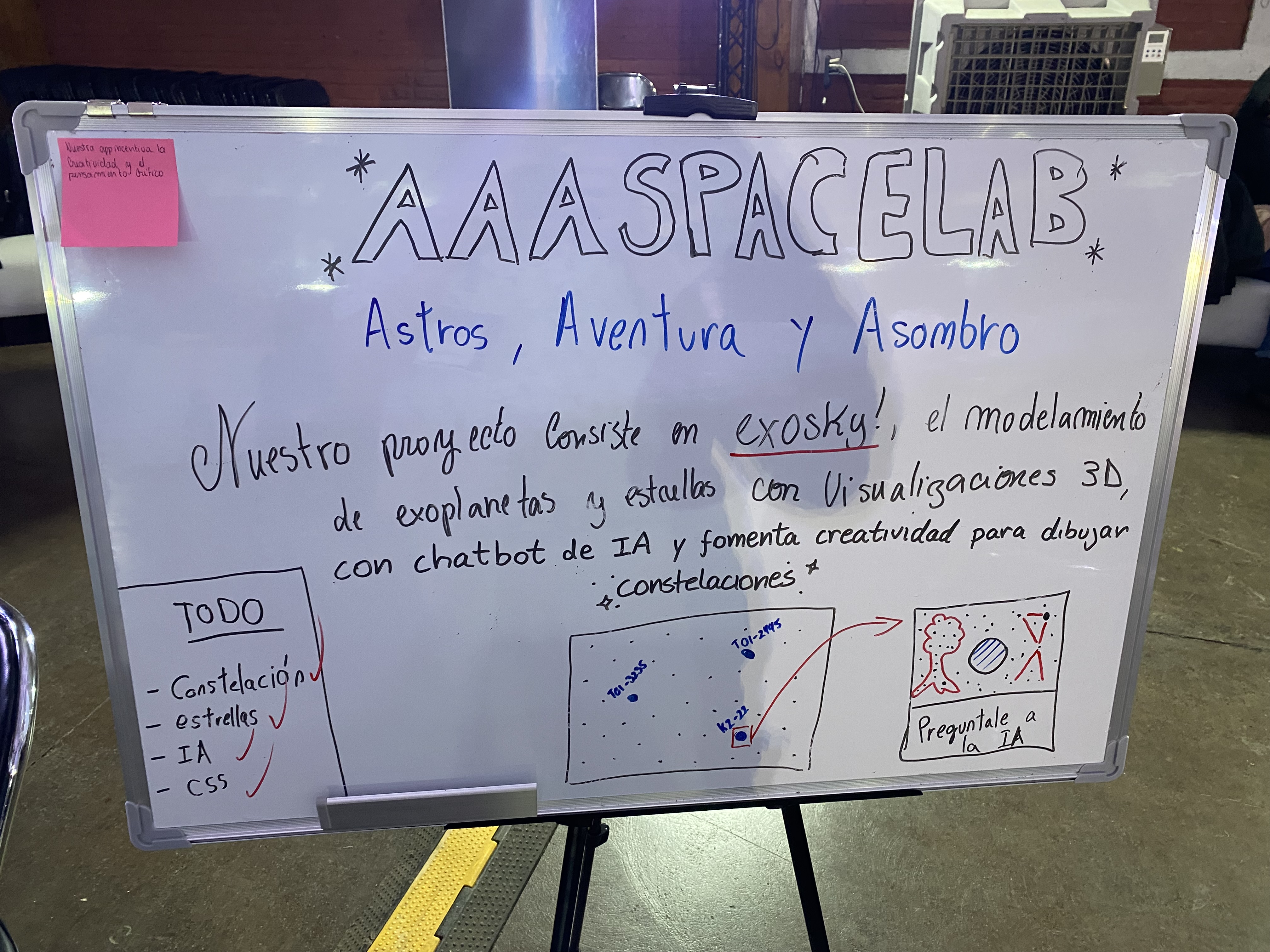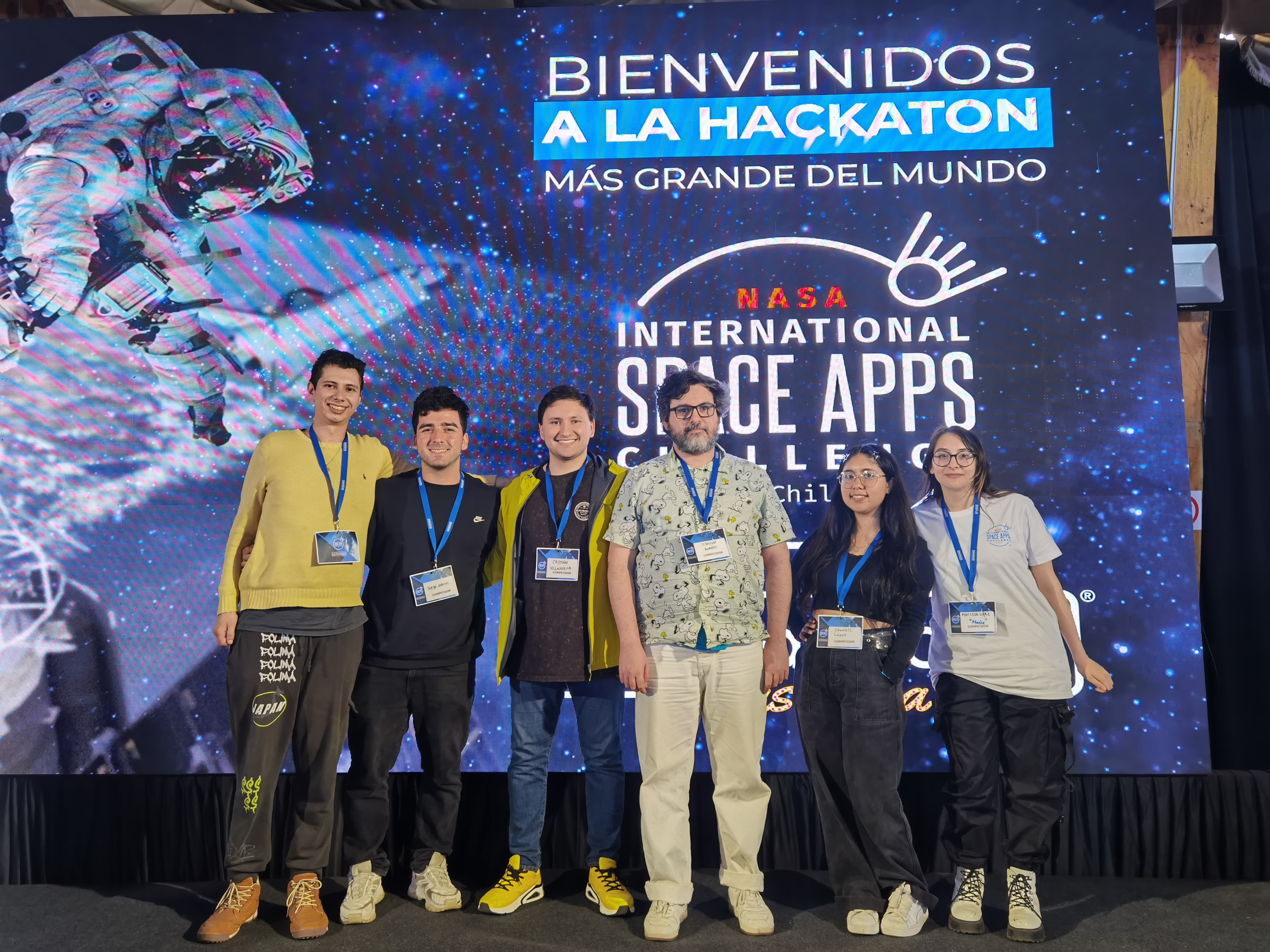NASA Space Apps Challenge 2024
The weekend of October 5th and 6th, I participated in the NASA Space Apps Challenge 2024 in Santiago, Chile, organized by La Araucana. It was an intense 48 hours of collaboration, learning, and high energy (thanks, Red Bull!).
The NASA Space Apps Challenge 2024 offers a variety of creative challenges, ranging from designing sustainable aquatic worlds and educating about exoplanets to creating interactive web applications, games addressing life in microgravity, and mapping greenhouse gas emissions, all with the goal of using NASA data to solve global and local problems.
If you want to see the full list of challenges, you can visit the official NASA Space Apps Challenge 2024 website.
AAA Space Lab: Learning Astronomy Through Play
Our project, AAA Space Lab, is an educational web application that aims to inspire children to explore the universe through play and interaction with AI.
Learning science doesn’t have to be boring. We wanted to create an educational experience that was as exciting as playing a video game while also fostering curiosity and critical thinking.
The main idea is exoplanet exploration. Users can navigate an interactive map and learn about the unique characteristics of each exoplanet.
Additionally, we included an AI chat that answers questions about each exoplanet and a constellation creator that allows children to create their own figures in the night sky and name them.
As you discover new exoplanets and ask the AI more questions, you earn points that unlock new exoplanets and content, keeping you engaged in your learning journey.
Behind the Scenes
Our tech stack included tools such as:
- Flask (Python) and Express.js (Node.js) for the backend
- React for the frontend
- TensorFlow and LangChain for natural language processing (NLP)
- Exoplanet Archive and Gaia DR3 as astronomical data sources

Some Things I Learned
The team was made up of people from different disciplines and levels of experience, which allowed us to not only find creative solutions but also learn from each other.
The time constraint forces you to prioritize and focus on the essentials. It teaches you to break the work into manageable tasks and delegate responsibilities according to each team member's skills.
This hackathon allowed me to learn about new topics and explore the possibilities offered by new technologies and how teamwork can drive innovative solutions that have a positive impact on today's and future generations.
Teaching science in a fun and accessible way is key to fostering curiosity and critical thinking in future generations. Science doesn’t have to be boring, and technology can be our ally in making it more attractive and accessible, helping to shape the future generations of scientists.
The Team

- Shanell López Mira
- Marcela López
- Jorge Oehrens Benavides
- Cristián Villanueva Massardo
- Benjamín Sánchez
- Sebastián Romero
Want to see SpaceLab in action? You can check out our demo and explore the code on GitHub.